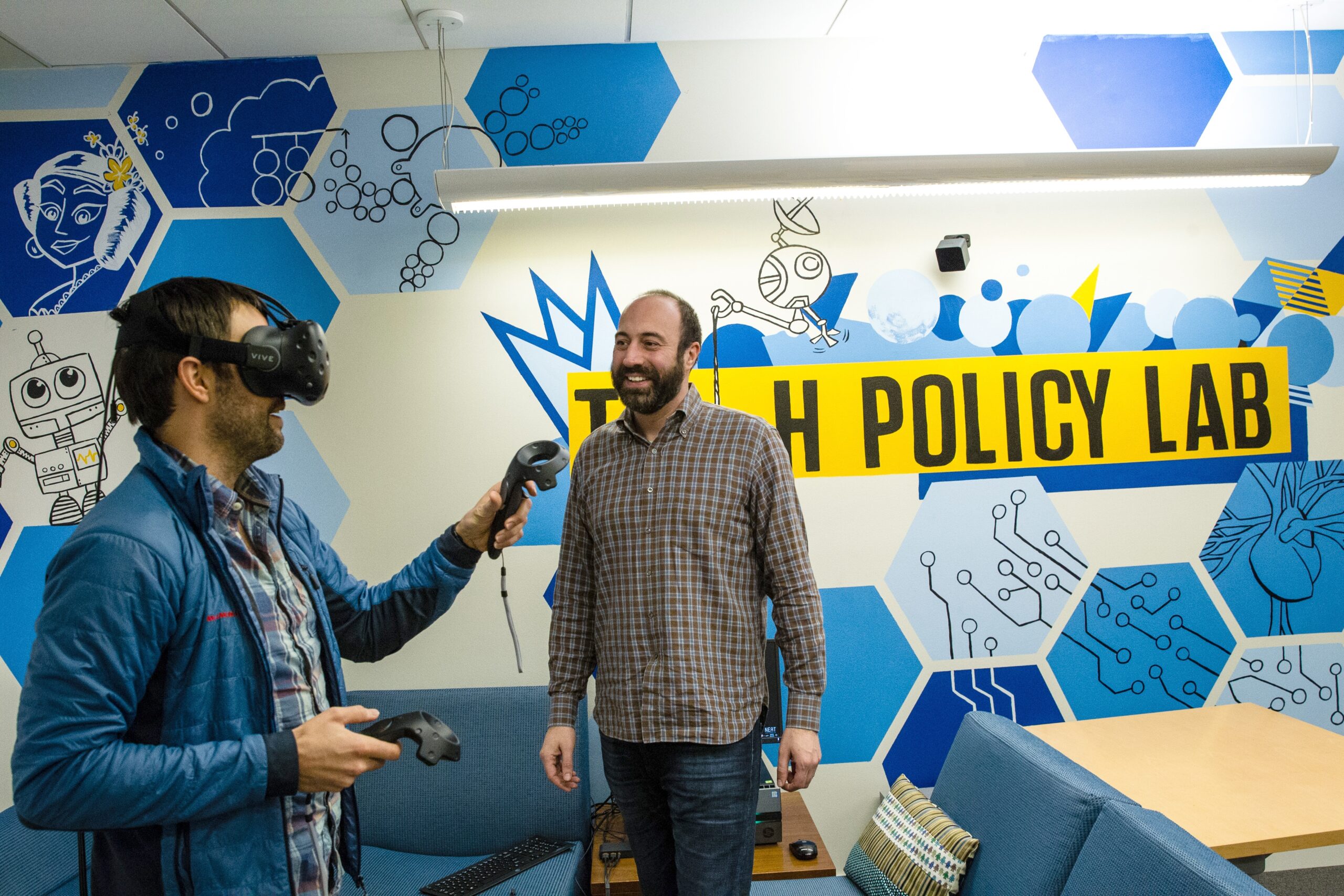Wayne Gittinger made people proud to be lawyers.
As a shareholder at Lane Powell for more than 50 years, Wayne wasn’t always the first to speak up. But when he did, people listened.
“He exhibited the highest level of professionalism,” recalls Michael Morgan, a shareholder who worked closely with Wayne. “It was truly remarkable.”
Wayne was a civic leader, family man and one of the leading business attorneys in the Northwest. He represented multiple generations of some of the firm’s biggest clients, including serving on the board of Nordstrom Inc. and Pabst Brewing.
Wayne passed away in 2014, and Lane Powell recently created an endowed professorship in his name at the University of Washington (UW), Wayne’s alma mater for both undergraduate and law school. The Lane Powell & D. Wayne Gittinger Professorship is dedicated to innovation, a high priority for a firm whose clients — from two-person startups to Fortune 500 companies — operate at the leading edge of their industries.
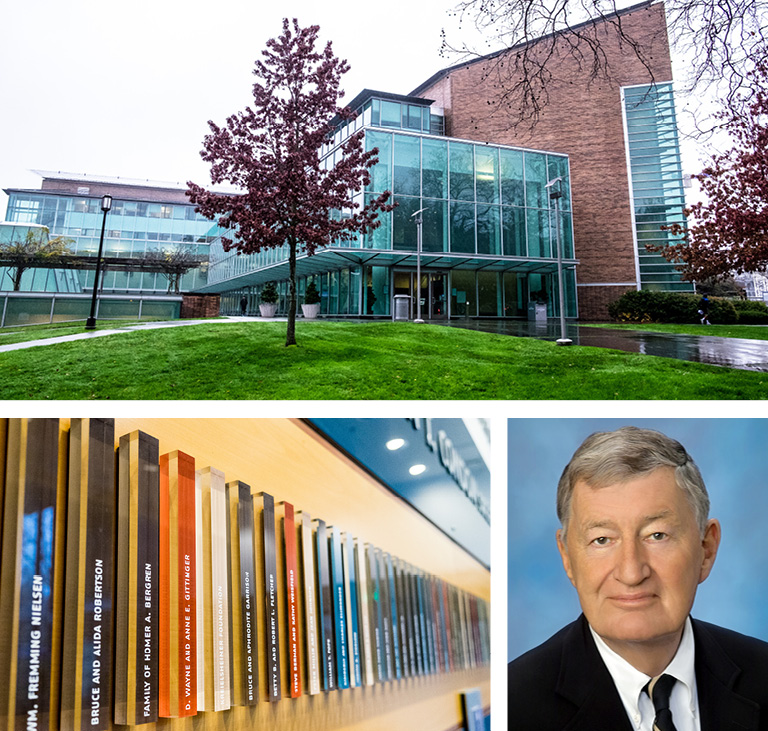 University of Washington; Gittinger joins the ranks of other generous endowments at the University of Washington; D. Wayne Gittinger
University of Washington; Gittinger joins the ranks of other generous endowments at the University of Washington; D. Wayne Gittinger
“Two of the most important institutions in Wayne’s life were Lane Powell and the University of Washington Law School,” says Wayne’s wife, Anne. “I’m so pleased that both of them were able to work together to establish this professorship.”
The professorship’s inaugural recipient is Ryan Calo, a UW assistant professor of law whose work focuses on the intersection of law, technology and public policy. As technology becomes a driving force in all business sectors, Lane Powell is committed to staying at the forefront of policy developments that guide the implementation of these technologies. Ryan is a vanguard in that effort.
In November, Ryan headed to Washington D.C. to testify before the U.S. Senate on “augmented reality (AR),” an emerging technology that delivers virtual elements like digital images and graphics as another layer of interaction with the real world. (AR should not be confused with virtual reality, which offers a digital recreation of a real life setting).
Professor Calo is quick to emphasize AR’s enormous potential.
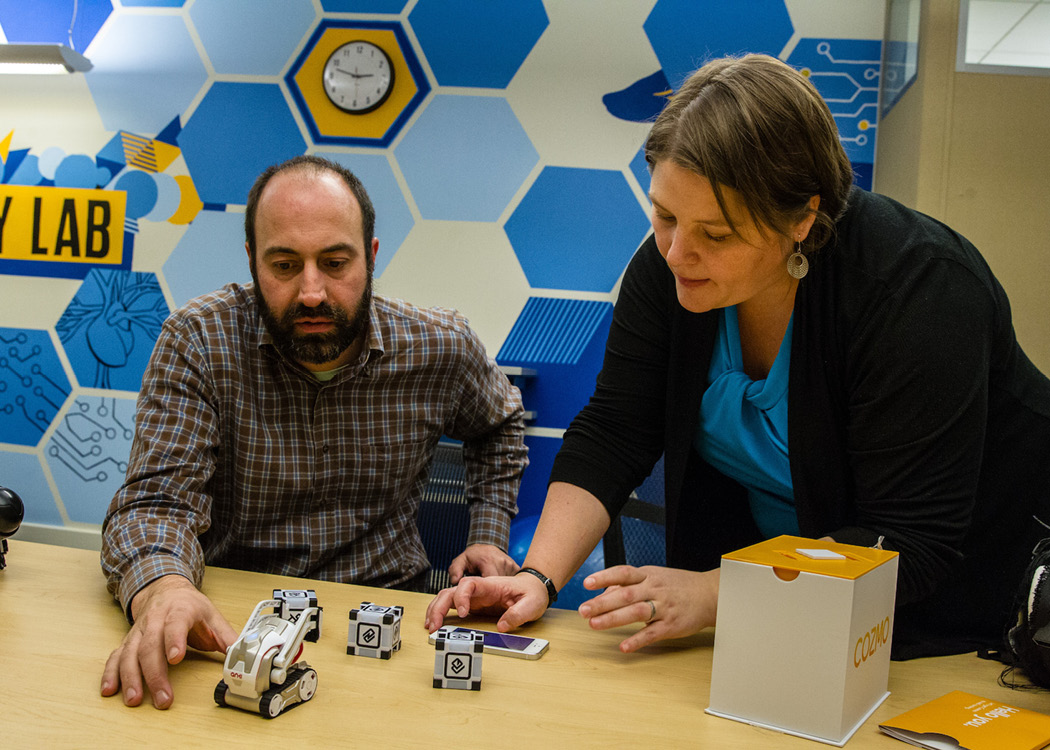 Ryan Calo, co-director of the Tech Policy Lab at UW, and colleague look over the programming of a robot.
Ryan Calo, co-director of the Tech Policy Lab at UW, and colleague look over the programming of a robot.
“It could be used to help people with disabilities, providing information about the world that their senses can’t access,” explains Ryan. “The fact that I’m able to drop everything and go to D.C. to help the Senate think about augmented reality — that’s a function of the support from Lane Powell.”
After completing law school at the University of Michigan, Ryan took on a few technical clients who required guidance on issues of privacy, free speech and telecommunications. Although he lacked formal education in technology or engineering, Ryan recognized a need to understand the implications of technology within the framework of the law.
“It’s very difficult to gain traction on these contemporary issues if you don’t work across disciplines,” says Ryan.
The Tech Policy Lab at UW, where Ryan is a faculty co-director, is allowing him to do just that. This unique space brings together students from the law school with computer engineering and information technology students.
“You don’t feel like you’re in law school anymore,” says Ryan. “We have lots of robots and a virtual reality system. Students are all talking and working together. The purpose of the lab is to help policymakers make wise and responsible decisions for the future.”
Ryan’s work through his professorship at UW is already affecting change in the top tiers of governance.
In May of this year, UW hosted the first of four public workshops on artificial intelligence (AI), in partnership with The White House.
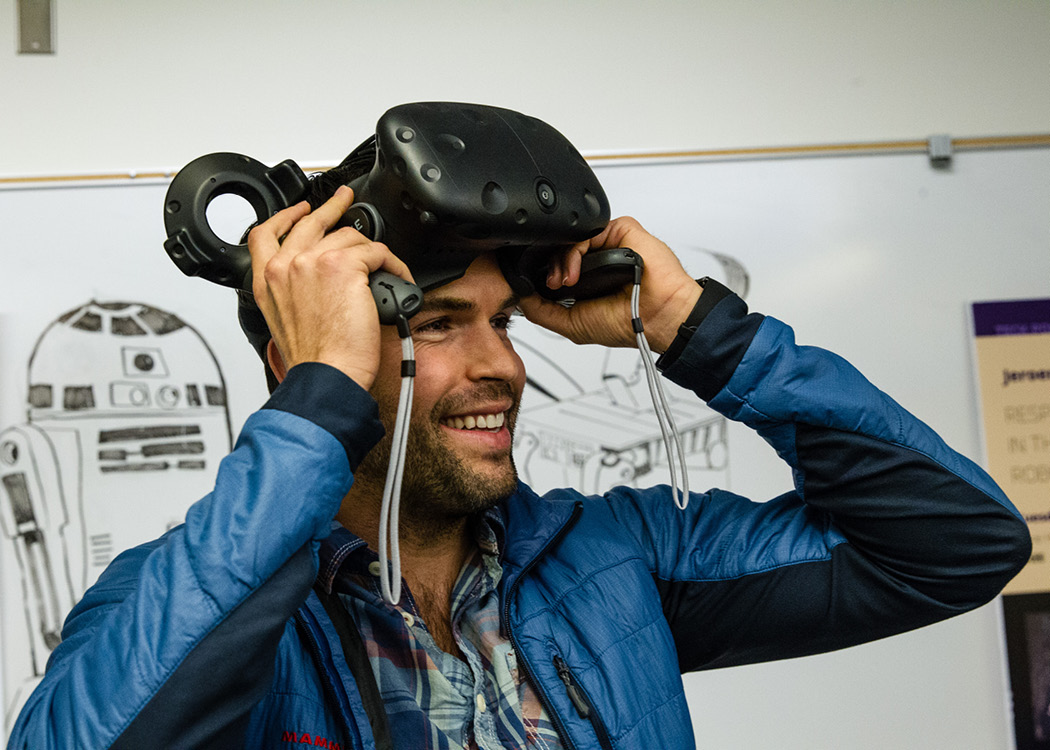 Virtual reality is another of the many technologies explored at the lab.
Virtual reality is another of the many technologies explored at the lab.
These workshops raised questions about the benefits and drawbacks of AI. Will mail service eventually be handled by robots? Will autonomous flight be used for deliveries? And how will the government determine when it’s appropriate to implement these capabilities? AI could play a big role in the future of diagnostic and treatment plans in hospitals. But will that development take jobs away from humans? And could replacing the human element of treatment be too risky?
Both Ryan Calo and Wayne Gittinger consistently emphasized the people affected by their respective work. Although Ryan works on technology developments with the potential to make humans obsolete — self-driving cars and robotics for example — he is dedicated to ensuring that a variety of voices are represented in policy debates related to these innovations. He regularly raises questions about how technological advancements can help the people who need them most.
“[Wayne’s] focus was always on taking care of the clients and listening carefully to what they had to say,” says Chuck Riley, President of Lane Powell. “Ryan’s approach would
definitely resonate.”
Wayne and Ryan (who never met) were very different types of lawyers. Wayne was traditional and soft spoken; Ryan is forward-thinking and enthusiastic. But they mirror each others ability to extract the human element from complicated jargon and webs of legislation.
Part of Ryan’s professorship involves sharing his work with Lane Powell, keeping them abreast of emerging technology policy in ways that directly affect their work.
Professor Calo was recently the keynote speaker of Lane Powell’s Third Annual Startups Seminar, which focused on the merging of the five “super technologies” — AI, cloud computing, the internet of things, big data and mobile.
“When you bring those things together,” says Ryan, “it opens up a universe of possibilities.”
The Startups Seminar is part of Lane Powell’s ongoing commitment to young companies. The law firm has an offshoot office at the co-working chain, WeWork, in Seattle, where they advise startup founders on common issues like intellectual property rights, employment, contracts and funding.
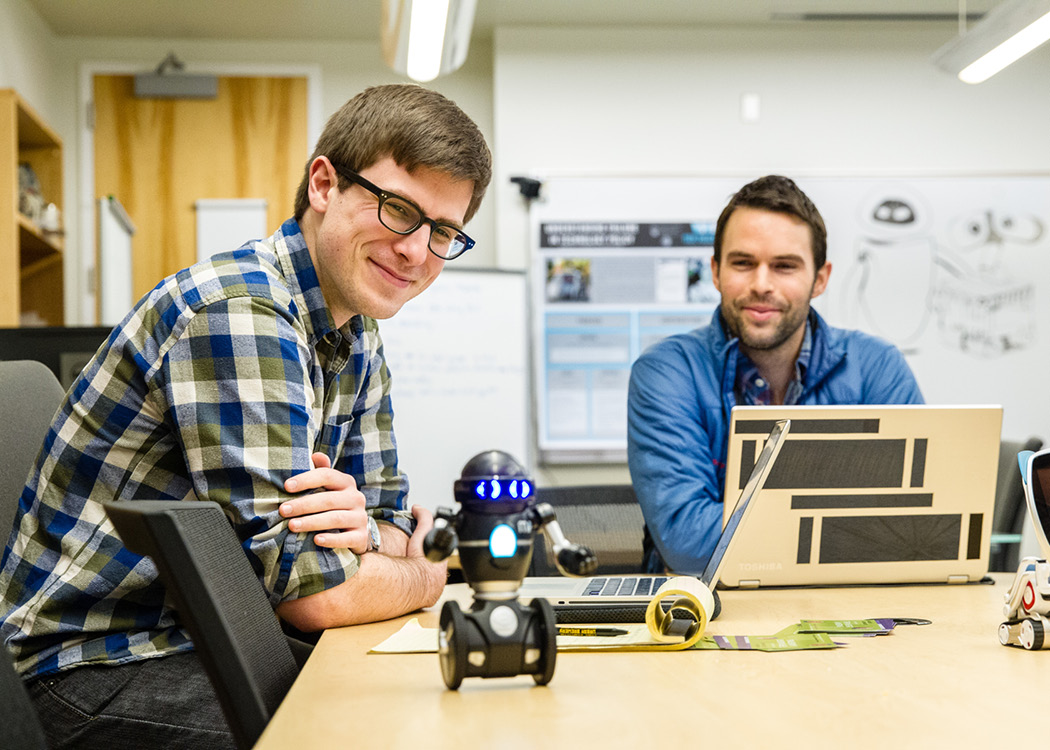 What roles will robots and AI occupy in society? This and other questions are considered in the Tech Policy Lab at UW.
What roles will robots and AI occupy in society? This and other questions are considered in the Tech Policy Lab at UW.
The Lane Powell team focused on startups and emerging companies specializes in the unique challenges that these types of companies face. The needs of these clients are steeped heavily in emerging technology, so it’s crucial for their representation to also be experts in this fast-paced field. Ryan Calo’s work will help Lane Powell continue to innovate ways to better understand and prioritize their clients’ needs.
“Wayne Gittinger embodied a dedication to the clients’ best interests,” says Chuck Riley. “That dedication remains a pillar of the work that we do here.”
The past is meeting the future through The Lane Powell & D. Wayne Gittinger Professorship. Ryan Calo’s passion for technology policy, paired with Wayne Gittinger’s lasting impact on the legal community, is fostering innovation that will help guide attorneys and meet clients’ needs for years to come.
“Wayne was a traditional guy.” Michael Morgan chuckles when he adds, “Technology was not his specialty. But [Ryan Calo’s work] would have put a smile on his face.”


